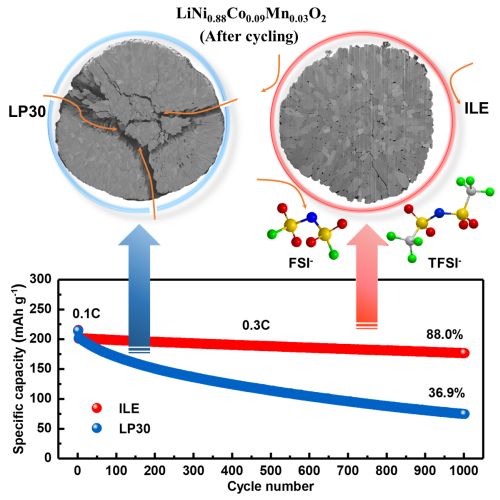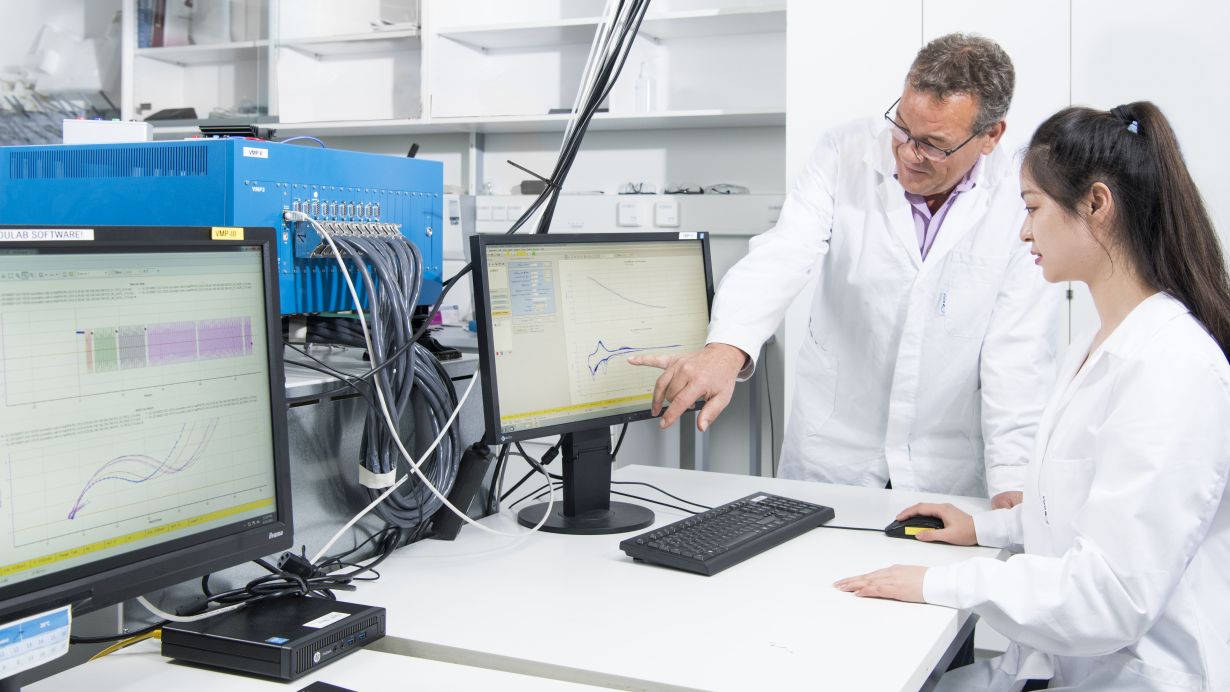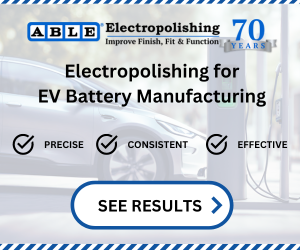Researchers at the Helmholtz Institute Ulm (HIU) have developed a new lithium metal battery that they say offers an extremely high specific energy of 560 watt-hours per kilogram (Wh/kg) based on the total weight of the active materials. The team used a nickel-rich cathode that allows a large amount of energy to be stored, and an ionic liquid electrolyte that ensures that the capacity is retained over many charging cycles. The team published their paper “Dual-anion ionic liquid electrolyte enables stable Ni-rich cathodes in lithium metal batteries” in an open-access paper in Joule.
The researchers used a low-cobalt, nickel-rich layered cathode (NCM88), which offers high energy density. With the commonly used commercially available organic electrolyte (LP30), however, the stability is unacceptable. The group therefore used a non-volatile, non-flammable ionic liquid electrolyte with two anions (ILE) instead.

With the cathode NCM88 and the electrolyte ILE, the lithium metal battery initially has a storage capacity of 214 mAh/g); 88% of the capacity is retained over 1,000 charging cycles. The Coulombic efficiency, which indicates the ratio between the withdrawn and supplied capacity, averages 99.94%.
“In the LP30 electrolyte, particle cracks occur on the cathode. The electrolyte reacts within these cracks and destroys the structure. In addition, a thick, moss-like lithium-containing layer forms on the anode,” said Professor Stefano Passerini, Director of the HIU.
Source: KIT via Green Car Congress



















































